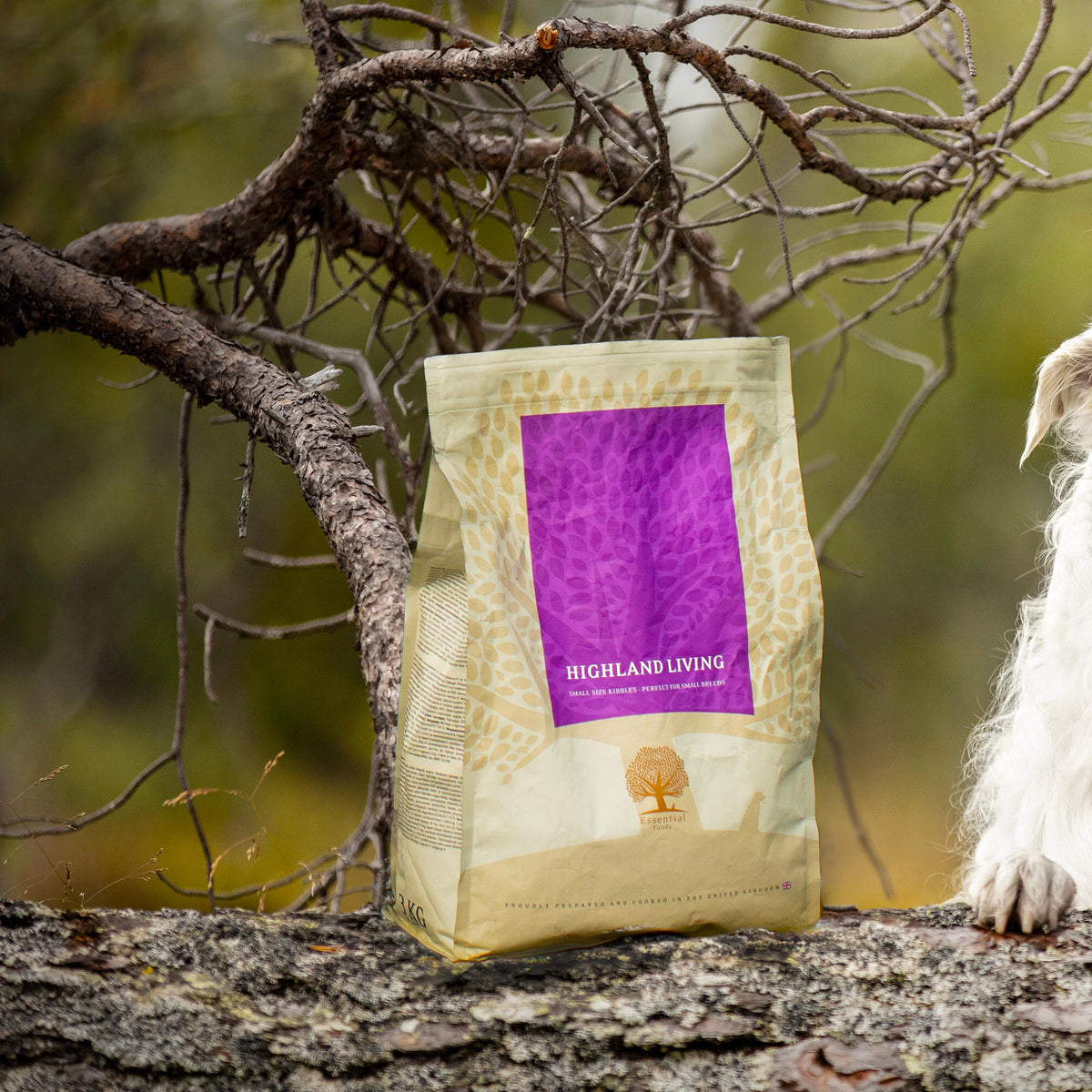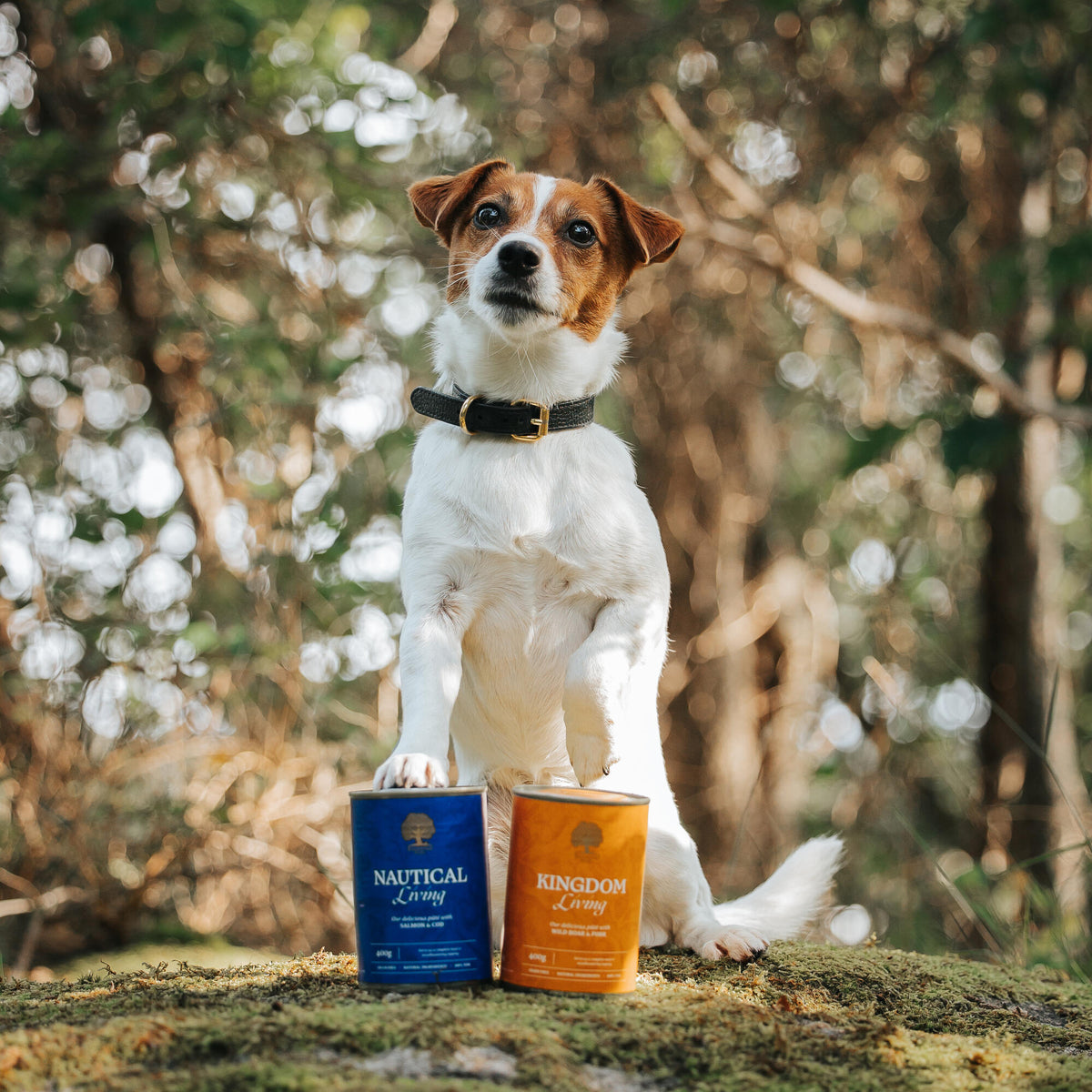Your Cart is Empty

When it comes to our dogs, we want nothing but the best for them. One crucial aspect of their well-being is their diet. Just like humans, dogs can have sensitive stomachs, and what they eat plays a significant role in their digestive health. Whether you have a young puppy or an adult dog, understanding what foods help settle a dog's stomach is essential. This guide will explore the best dietary choices, focusing on puppy food, natural dog food, and grain-free dog food.
Dogs are naturally curious and sometimes consume things they shouldn’t, leading to stomach upset. This could include eating garbage, table scraps, or even non-food items.
Some dogs are allergic or sensitive to certain ingredients in their food. Common allergens include beef, dairy, wheat, and chicken.
Abruptly changing your dog’s food can cause digestive disturbances. It’s essential to transition to new food gradually.
Frequent vomiting is a clear sign that something is wrong with your dog's stomach.
Loose or watery stools can indicate a sensitivity to certain foods or ingredients.
If your dog is refusing to eat, it might be due to stomach discomfort or nausea.
Puppy food is often specially formulated to be gentle on young stomachs, ensuring that they get the nutrients they need without causing digestive upset.
Puppies require a different nutrient balance compared to adult dogs, and high-quality puppy food can provide this.
Natural dog food is free from artificial additives, colors, and preservatives that can upset a dog’s stomach.
Using higher quality, whole ingredients ensures better digestion and nutrient absorption.
A diet rich in natural foods supports overall health, including a robust digestive system.
Many dogs are allergic to grains like wheat and corn. Grain-free dog food eliminates these potential allergens.
Grain-free optionsare often easier on the digestive system, helping to prevent stomach upset.
Dogs with certain health conditions, such as gluten intolerance, benefit greatly from a grain-free diet.
This bland diet is easy on the stomach and helps firm up loose stools.
Pumpkin is high in fiber and helps regulate the digestive system. It can be a great addition to your dog’s diet if they are experiencing diarrhea.
Bone broth is gentle on the stomach and highly nutritious. It can also help keep your dog hydrated.
Probiotic yogurt introduces beneficial bacteria to your dog’s gut, aiding in digestion and reducing stomach upset.
Puppies have different nutritional requirements than adult dogs. Always choose puppy food designed to support their growth and digestive health.
When introducing new foods to a puppy, do so gradually to avoid overwhelming their digestive system.
Certain herbs like slippery elm and marshmallow root can soothe the digestive tract.
Probiotics can help balance the gut flora, promoting healthy digestion.
These herbs can reduce nausea and soothe the stomach. Ginger can be given in small amounts, while chamomile can be made into a mild tea.
Signs include dry gums, lethargy, and sunken eyes. Keeping your dog hydrated is crucial, especially if they have been vomiting or have diarrhea.
Provide fresh water at all times and consider offering diluted bone broth to entice them to drink more.
Switching dog food should be done slowly over 7-10 days. Mix increasing amounts of the new food with the old food each day.
Keep an eye on your dog’s stool and overall behavior during the transition period to catch any adverse reactions early.
Look for foods with high-quality proteins, easily digestible carbohydrates, and beneficial additives like probiotics.
Avoid foods with artificial additives, by-products, and common allergens like wheat, corn, and soy.
Grain-free options are less likely to cause allergies and sensitivities.
Dogs thrive on high-protein diets, which support muscle maintenance and overall health.
A high-meat content ensures your dog gets the necessary amino acids and nutrients.
Dogs love the taste, which makes feeding time easier and more enjoyable.
Ensuring your dog’s diet supports their digestive health is vital. Opting for high-quality, natural, and grain-free options can significantly reduce stomach issues. Essential Dog Foodstands out as an excellent choice due to its biologically optimal formulation, high protein levels, and excellent palatability. By paying attention to what your dog eats, you can help them lead a happier, healthier life.
What are the signs of a food allergy in dogs? Common signs include itching, redness, chronic ear infections, and gastrointestinal issues like vomiting or diarrhea.
How can I tell if my dog has a sensitive stomach? Symptoms include frequent vomiting, diarrhea, gas, and a general lack of appetite.
Is it okay to feed my dog human food? Some human foods are safe, but many can be harmful. Stick to dog-friendly options


